Everyday lessons children learn (a minor rant in D sharp)
During the summer, neighborhood residents can pay a fee to use the swimming pool at my apartment building. It’s a win-win, at least for those who can afford it. Families get access to an outdoor pool during the hot months. The building owners make a little extra money, or have more to pay for the pool’s upkeep. (Residents don’t pay extra.)
For the most part, the families are well-behaved. The children can be loud and rowdy, but that’s normal. I expect that.
Over the years, though, some families haven’t been so well-behaved. I noticed that when one woman with four boys arrived, they would take over the pool from west shallow end to east deep end, from north side to south side. Some of the other families, crowded out by five people, would collect their children and leave. It’s hard to have fun when you find yourself in the middle of someone else’s game (boys) or laps (woman). The woman, whose personality resembled Lucy van Pelt’s, never seemed to notice the disruption they brought. That obliviousness bothered me most. (To be fair, some families greeted her, so she was known in the neighborhood.)
Other parents bring younger children, then don’t supervise them. The area is full of hazards, including sprinklers that are easy for running kids to trip over, but they’re let loose anyway, come what may. Some run around screaming. A few who spot the local wildlife—often rabbits, sometimes baby rabbits—chase and terrorize it. My favorite was the trio who jumped up to grab the lowest branches of one of the struggling crab apples, then stripped all the leaves off. Bored with that, and with no parents in sight, they broke off the lower branches they could reach. I said something to them, but they stopped only a moment, then ignored me. (Sometimes it works. Sometimes it doesn’t.) When I came out the next day, the devastation under the tree made it look like a major storm had blown through.
The other thing I notice is how much stuff people leave behind. Pool toys and noodles. Floats. Towels. Action figures. Bottles. Shoes and articles of clothing. Pool users leave something behind almost every day. When I was a kid millennia ago, my brother and I didn’t lose anything or leave it behind. We didn’t have much, and if you lost something you weren’t going to get a replacement or something else to console you.
This brings me to a different topic—the building’s bike room. For a long time it was full of bikes. I noticed many, probably most, of them had flat tires and other signs of neglect, like dust, cobwebs, and cocoons. Some remained untouched for years, presumably abandoned since tenant turnover rate is substantial. Except for the rust and grime of neglect, most appear to be in okay shape. That’s especially true of some of the abandoned children’s bikes. They’ve been there so long that the former owners must be in middle school (or higher) by now.
Every now and then management purges some bikes they can’t account for, but not all. Every time I see these still useful bikes hanging or lying there, getting dirtier and more banged up, I wonder if the former owners realized how many people would appreciate having one of those rusting conveyances. There’s even a bike shop in the area where teenage workers learn how to repair bikes while earning a refurbished bike for themselves. I’m floored by the waste, which was a luxury that only a few could indulge in not so many generations ago.
Bother the bunnies, trash the trees, waste what you have—there’s more where that came from.

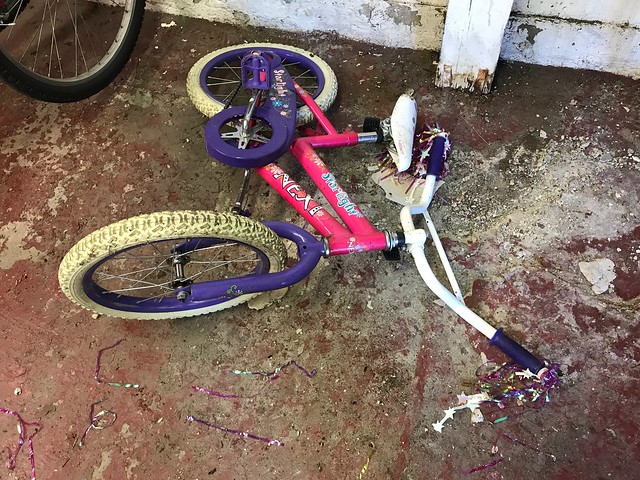
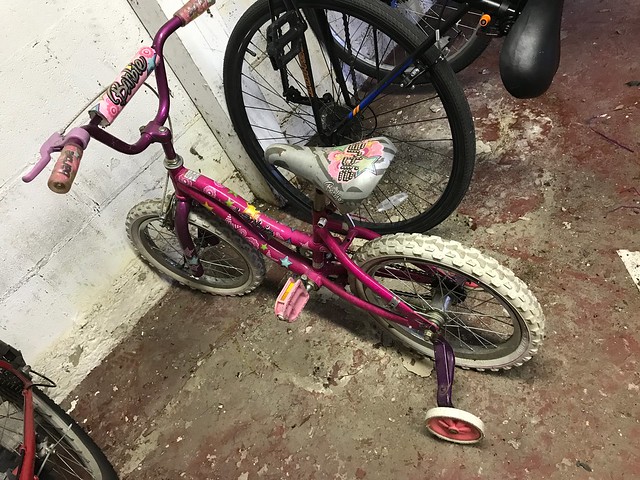
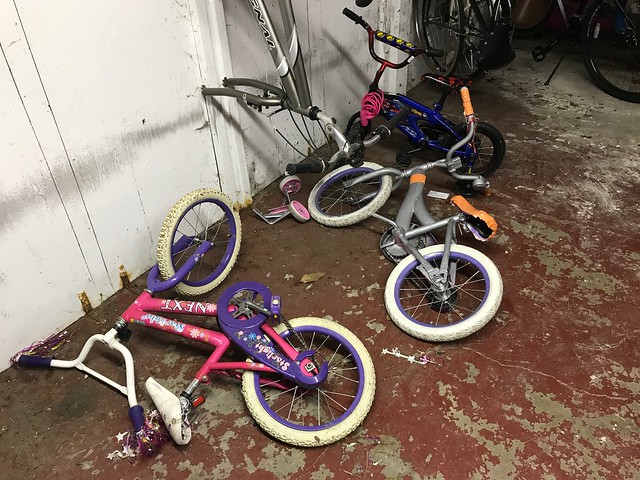
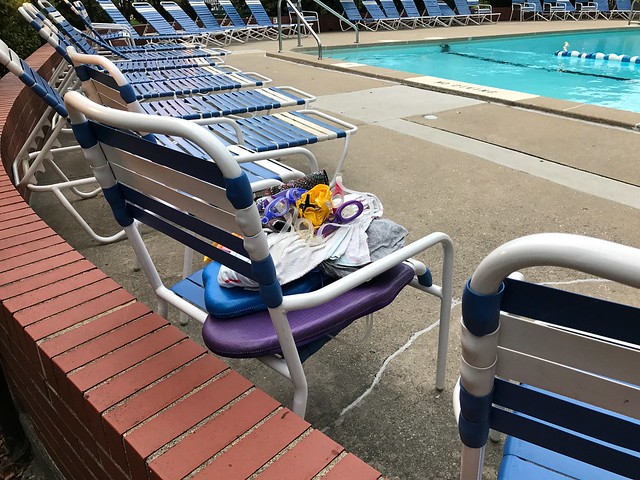
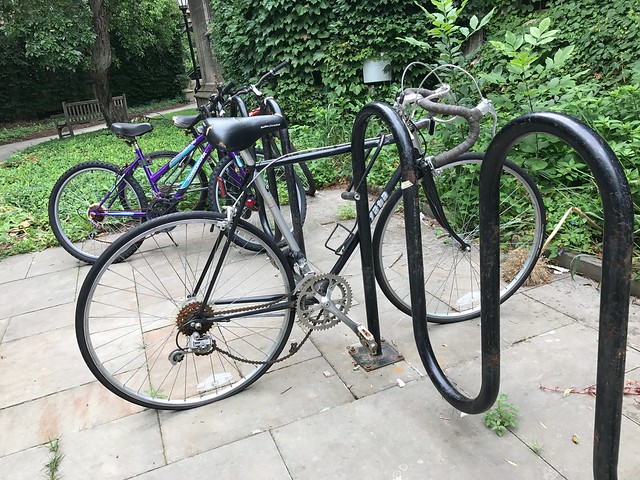
I imagine that a college student might choose to buy a bike after coming to campus and then just abandon it. But why abandon it with a lock on it? Why not sell it or just give it to that bike shop? (Miyatas, I think, are pretty good bikes.)
I can’t imagine discarding anything so pricy as a bicycle, but my family wasn’t affluent. When I finally had to get a new bike a few years ago, I left my old bike (reluctantly—I’d have kept it if I had a garage for nostalgia’s sake) in the alley. It was over 40 years old, but I figured someone could do something with it or the parts.
Here’s more about Blackstone Bicycle Works. These kids could even fix up those abandoned children’s bikes for a younger sibling, I bet.